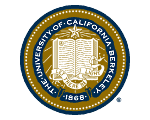Ross Gayler
PhD in psychology from University of Queensland
VSA: Vector Symbolic Architectures for Cognitive Computing in Neural Networks
Friday 14th of June 2013 at 11:00am
Evans Room 560
This talk is about computing with discrete compositional
data structures in analog computers. A core issue for both computer
science and cognitive neuroscience is the degree of match between a
class of computer designs and a class of computations. In cognitive
science, it is manifested in the apparent mismatch between the neural
network hardware of the brain (essentially, a massively parallel
analog computer) and the computational requirements of higher
cognition (statistical constraint processing with compositional
discrete data structures to implement facilities such as language and
analogical reasoning). Historically, analog computers have been
considered ill-suited for implementing computational processes on
discrete compositional data structures.
Neural networks can be construed as analog computers -- a class
of computer design with a long history, but now relatively unknown.
Historically, analog computation had advantages over digital
computation in speed and parallelism. Computational problems were cast
as dynamical systems and modelled by differential equations, which was
relatively straightforward for models of physical problems such as
flight dynamics. However, it was far less clear how to translate
computations on discrete compositional data structures such as trees
and graphs into dynamical systems. This is especially true for
problems where the data structures evolve over time, implying the
need to rewire the analog computer on the fly. This is particularly
relevant to cognitive science because new concepts and relations can
be created on the fly, and under the standard conception of neural
networks this implies that neurons and connections would be created
impossibly rapidly.
In this talk I describe Vector Symbolic Architectures, a family of
mathematical techniques for analog computation in hyperdimensional
vector spaces that map naturally onto neural network implementations.
VSAs naturally support computation on discrete compositional data
structures and a form of virtualisation that breaks the nexus between
the items to be represented and the hardware that supports the
representation. This means that computations on evolving data
structures do not require physical rewiring of the implementing
hardware. I illustrate this approach with a VSA system that finds
isomorphisms between graphs and where different problems to be solved
are represented by different initial states of the fixed hardware
rather than by rewiring the hardware. Graph isomorphism is at the
heart of the standard model of analogical reasoning and motivates this
example, although that aspect is not explored in this talk.
BIO. Ross Gayler has PhD in psychology from University of
Queensland, with a long and far-reaching interest in the mysteries of
cognitive computing. His day job is as a statistician in the finance
industry.(video)
Join Email List
You can subscribe to our weekly seminar email list by sending an email to
majordomo@lists.berkeley.edu that contains the words
subscribe redwood in the body of the message.
(Note: The subject line can be arbitrary and will be ignored)

